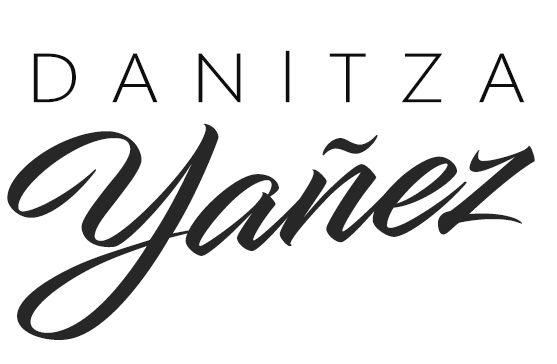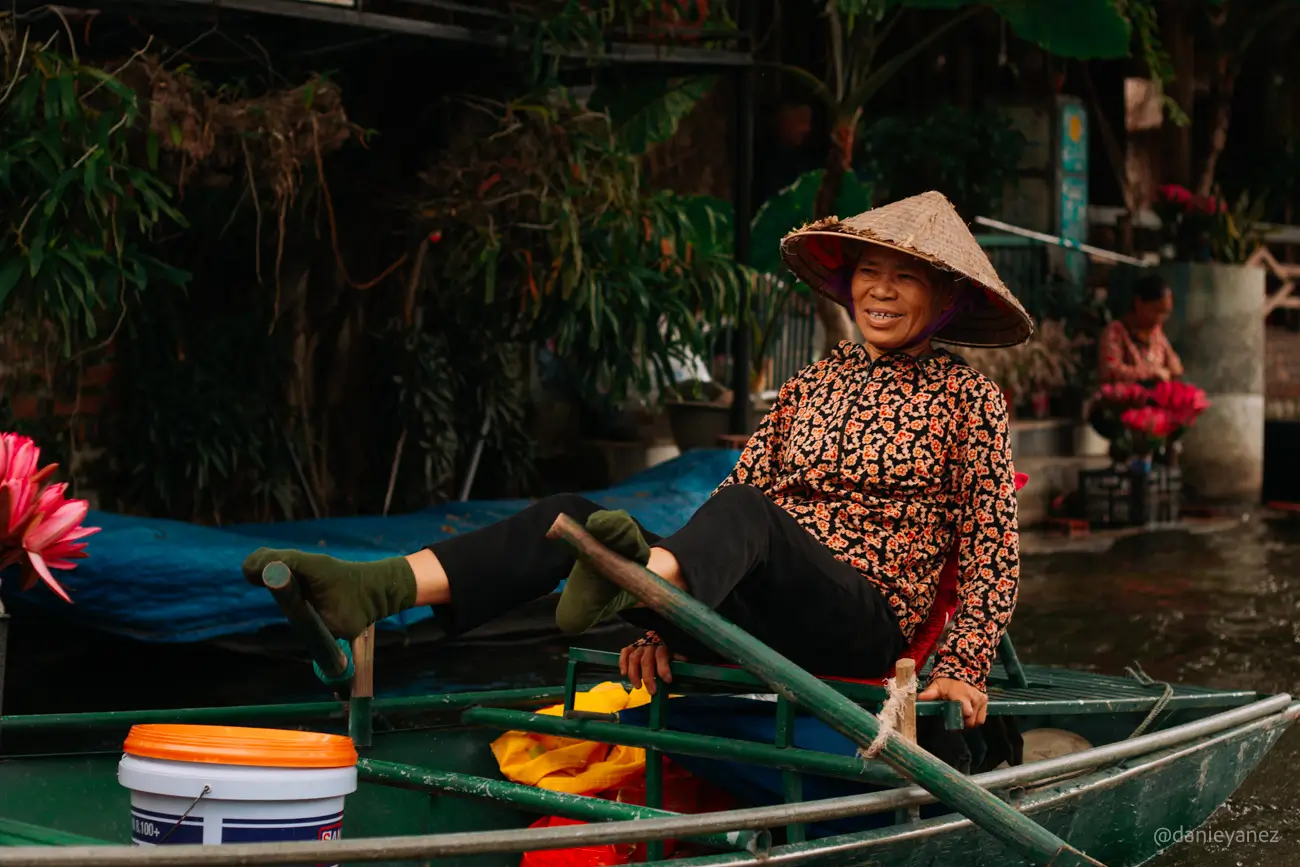From a traveler/digital nomad. This is the list of things that I find indispensable for traveling. Some of the items on this checklist for digital nomads I brought with me from day 1, while others, I had no idea I would need them but ended up forcing myself to get them at some point.
Some things will depend a lot on your destination and type of travel, however, I believe this checklist is quite general. So, regardless of where you go, take a look and grab what you find useful 🙂
And as always, illustrated with photos I took on a trip. In this case, Bali, Indonesia.
Medicines and Supplements:
It’s likely that in most countries, you’ll find the medications you need. Although if you require something that’s not over-the-counter, it can be a problem. If that’s your case, talk to your doctor and consider the possibility of stocking up as much as possible. However, don’t forget to check the laws of each country for importing medications.
It can also be challenging to try to buy medicines in a country where you don’t know the language, even if they are over-the-counter. Although everything can be translated, you might feel more secure buying the ones you know from home.
My basic kit in case I get sick during a trip:
Another good idea is to put together a first aid kit with bandages, pain relievers, antihistamines, and any over-the-counter medication you might need. Here’s my list of basic medicines and supplements – both brand names and generics:
- Tylenol (Paracetamol or Acetaminophen)
- Ibuprofen
- Pepto Bismol (Chewable Tablets for Nausea, Heartburn, Indigestion, Upset Stomach, etc –this specific brand is not available worldwide, and having it in my suitcase has been incredibly helpful specially in South East Asia – I carry the tablet version)
- Waterproof band-aids in all shapes and sizes
- Antihistamines (Loratadine or Cetirizine)
- Antiseptic (to disinfect wounds and prevent infection)
- Probiotics
- Electrolytes
I’ve definitely had to restock on the way, but having them around at the moment I need them has been much better than dealing with a fever and having to go to the pharmacy, try to communicate, understand what they’re saying, see if they specifically have the brand I want, research the generic, translate it, make sure it’s the right medicine, etc…

Nomad Travel Insurance:
I think if I had to choose only one essential thing for a long trip, it would be travel insurance. To enter many countries, travel insurance is one of the main requirements. It’s practically mandatory; although sometimes they don’t even ask if you have it, and that’s why many people skip it. In my opinion, skipping travel insurance is not a good idea.
Imagine you have a serious accident or get sick and need hospitalization; medical costs for foreigners tend to be higher regardless of how expensive or cheap the country is. Good insurance ensures that, in case of illness or injury, you can receive the necessary care without worrying about excessive expenses.
Do your research! I don’t have one specific to recommend since the one I used failed me tremendously when I had an accident. Luckily it was a minor injury that I could afford on my own but I can’t stress enough how important it is to research the insurance company you hire.
Plug Adapters and Extensions:
We already know that in many countries power outlets are different and that you need to get a Universal Power Adaptor or an adaptor specific to the country you’re visiting. I prefer the second option, the specific ones tend to be more stable and comfortable but it’s less practical since you may end up with many different ones if you move around a lot.
But what I want to recommend is that you bring an extension cord with you. Especially if you’re a digital nomad. This way, you don’t have to worry about finding a free seat next to the power outlet in the café or coworking space.With an extension cord, it’s more comfortable to work from wherever.
Another big reason is that you only need to get one adapter and you can connect the rest of your devices to your extension cord. You don’t need a thousand adapters for each country. It’s better to invest in buying a good quality one!
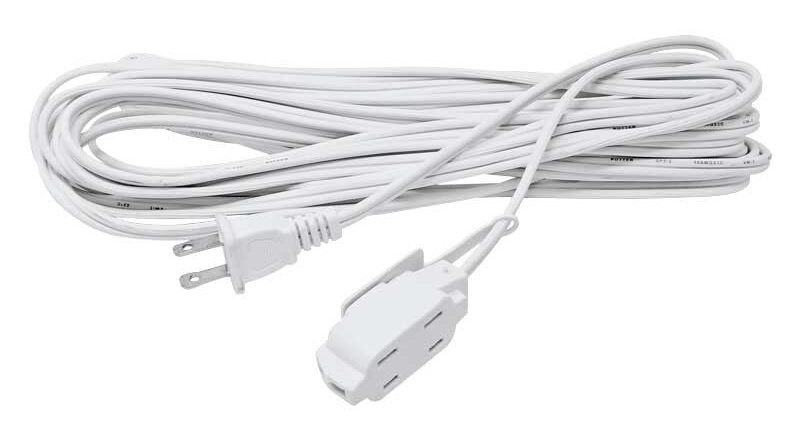
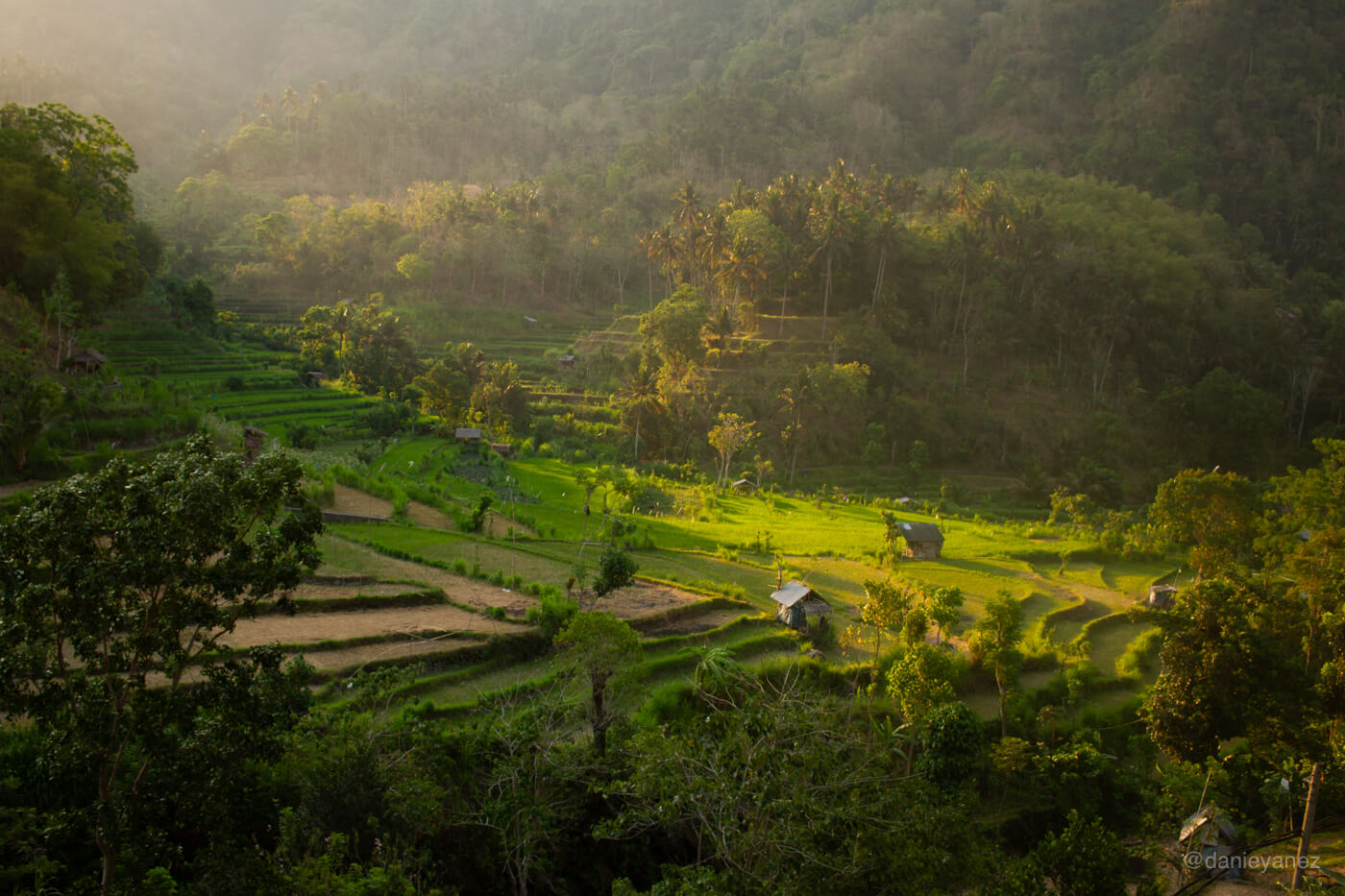
A VPN (Virtual Private Network)
This is important, especially if you’re a digital nomad. Connecting to public networks can expose your private information (even a “password-protected private network” that many people have access to, like a café or a hotel). My mom had her card details stolen and lost money because she was shopping online unprotected. Unfortunately she couldn’t figure it out with her bank.
Why do I need this for?
These are the reasons why having a VPN is highly recommended:
- Security on public networks: As I mentioned, public networks expose you to possible hacker attacks. A VPN encrypts your connection and helps protect your data.
- Geographically restricted content: Imagine your favorite series is only available in your country. With a VPN, you can access that content.
- Browsing privacy: The VPN hides your real IP address and encrypts your data. This is crucial to protect your privacy, especially when connecting to the internet from different locations.
- Avoiding Phishing Attacks: By connecting through a VPN, you reduce the risk of phishing attacks, as your connection is encrypted, making it difficult to intercept sensitive data.
- Secure Shopping and Transactions: When you make online financial transactions, such as purchases or accessing bank accounts, a VPN adds an additional layer of security, protecting your data from possible theft attempts.
This is the VPN company that I use it’s called Surfshark, get a month for free with this link. Honestly, similar to travel insurance, out of the options I found, this one seemed to offer more for a better price. It has a bunch of additional features like an alternative ID, an exclusive IP, and you can also install it on any number of devices without limits, which I found extraordinary.
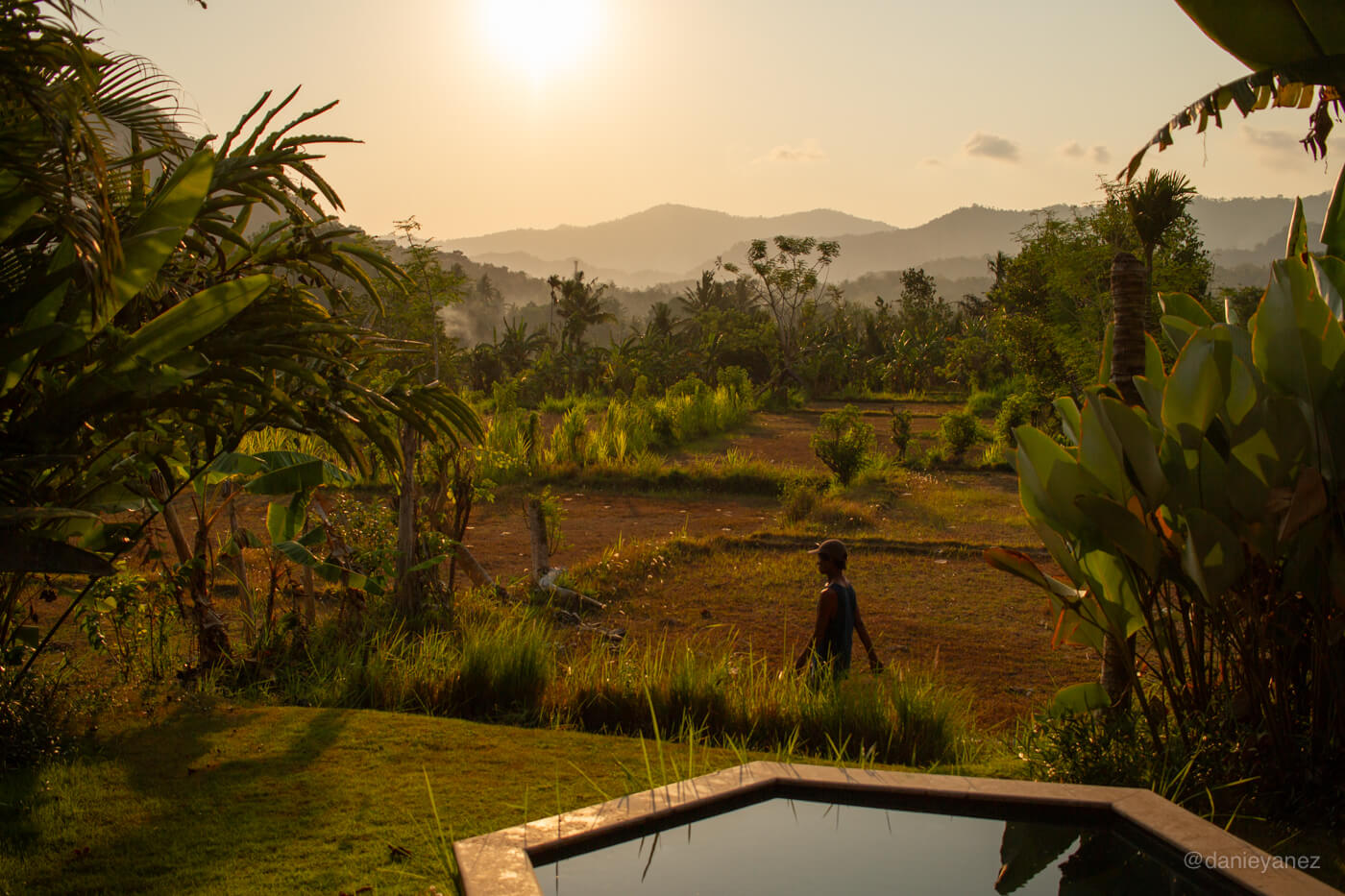
Protection for Your Suitcase and TSA Lock
When I started traveling, I used to send my suitcase to the airport without protection, and it would come back battered, stained, dented, scratched, etc. My first suitcase, although it was a good brand, didn’t last long enough. We all know how suitcases are treated at the airport. After a short time, it started tearing until it became unusable.
When I had to replace it, I spent hours and hours looking at suitcases. I found the perfect one for me. An Osprey with straps in case I had to carry it, but with wheels that smoothly roll even on cobbled streets. Completely in love, I took it, again unprotected, to the airport. Terrible decision. But it served me to realize that I URGENTLY needed something to cover it.
Also, without protecting it, it’s harder for things to be stolen from your suitcase when you check it at the airport (yes this happens in many countries). The issue is that you have to close it well so that your stuff doesn’t get stolen, but not so impossible to open in case TSA decides to check it.
My Airport Set Up:
I’ll share my airport set up to protect my suitcase from being broken but also from unwanted openings.
- My suitcase is a Wheeled 65L Osprey (which I LOVE) and it’s locked with a TSA lock (which supposedly is ideal in case they check your suitcase at the airport).
- Then, I cover my suitcase with a protector with a zipper. I bought one from Forclaz at Decathlon that compresses when I’m not using it.
- The zipper of the Forclaz protector is locked with a regular non TSA lock.
So, my thought is, if TSA decides to check it, I don’t worry that they’ll destroy the protector to open it. Inside, the suitcase has the TSA lock that supposedly only they can open, so they don’t destroy my suitcase trying to open it. I do it this way because even though it hasn’t happened to me, I do know people whose suitcases have been broken while being checked, or others who have had things stolen at some point after checking in at the airport.
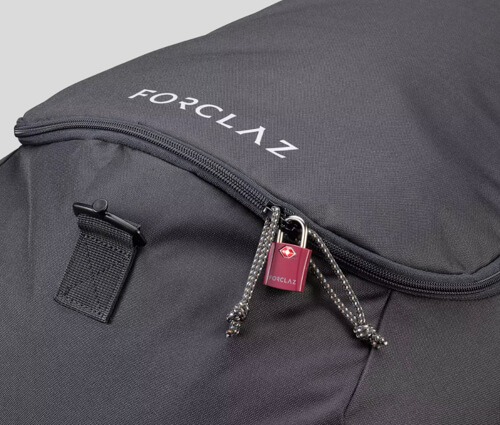
Extra Debit or Credit Card for Emergencies
I don’t know how many times it has happened to me that in a certain country, they don’t accept a certain card for any reason, and I have to use “the other one.” Or the times when, as I haven’t returned to my country in years, my bank blocks my card for safety, and the process to unblock it takes hours or days. And well, thank God, I’ve never been robbed, but imagine being in another country and running out of money and without a card. Or simply forgetting it in an ATM, or the ATM eating it, and you can’t get it back…
To be safe, at least travel with two accounts that you obviously have access to from your phone, and never put them in the same place. Put one in your bag when you go out and leave the other in your suitcase, or in a safe deposit box, or in a locker.
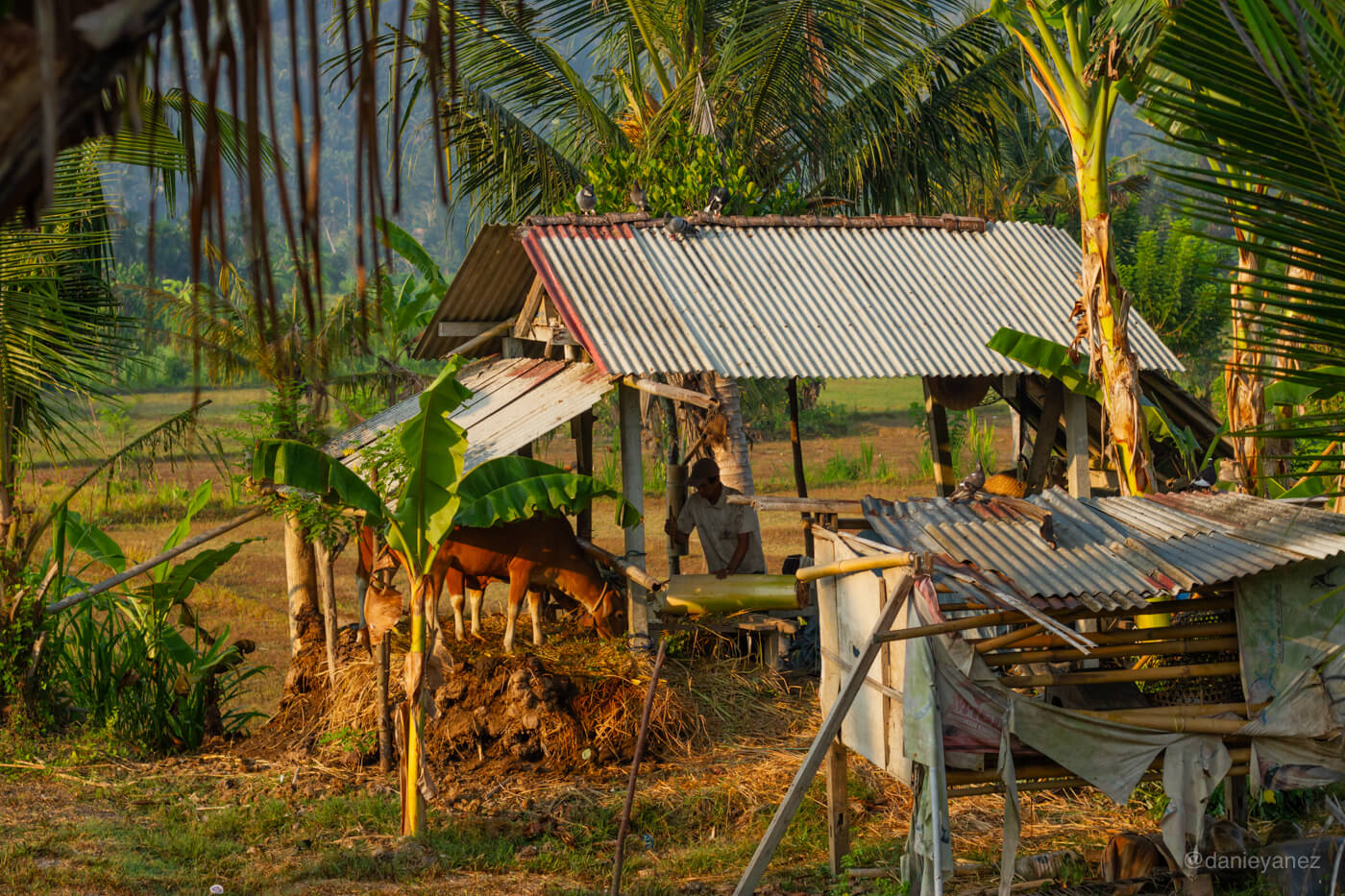
Online Backup of Documents and Photos
The most valuable things I have are my memories. For me, that translates into photos and videos of everything I’ve seen and done over the years. I use iCloud because it not only backs up but also helps me keep my phone memory to a minimum. For Android, Google Photos seems like a very good option. Honestly, I think the expense is minimal compared to how horrible it would be to lose my information if something happens to my phone. At the end of the day, the phone is always replaceable.
Also, having photos of your passport with you seems safer than carrying the original all the time. It’s very likely that you’ll need it for things you didn’t think of, like buying a SIM card or even for deducting the tax on a large purchase. At the very least, always have a photo of your passport, visa, travel insurance policy, and driver’s license.
Portable Door Lock
I think it’s never a bad idea to be a bit exaggerated with security and bring one portable door lock with you. It takes up no space and provides additional security. I’m terrified to think that someone could easily rent the room before me and make a copy of the key. With this, you make sure that even with the key, they can’t enter your room. This is especially important if you’re a woman traveling alone.
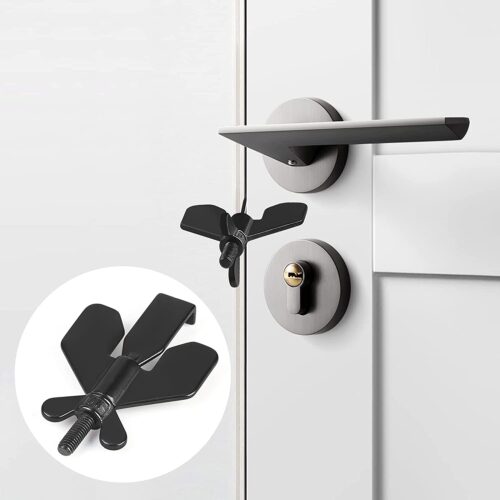
I hope this checklist for digital nomads was helpful, and if you have any travel doubts, you can contact me on Instagram.

